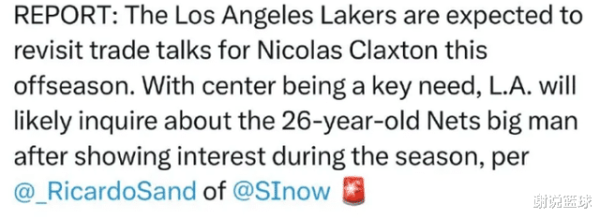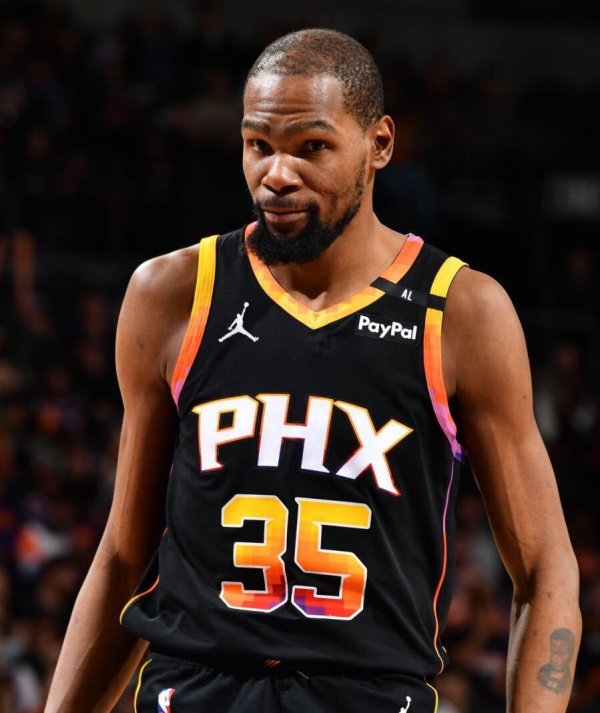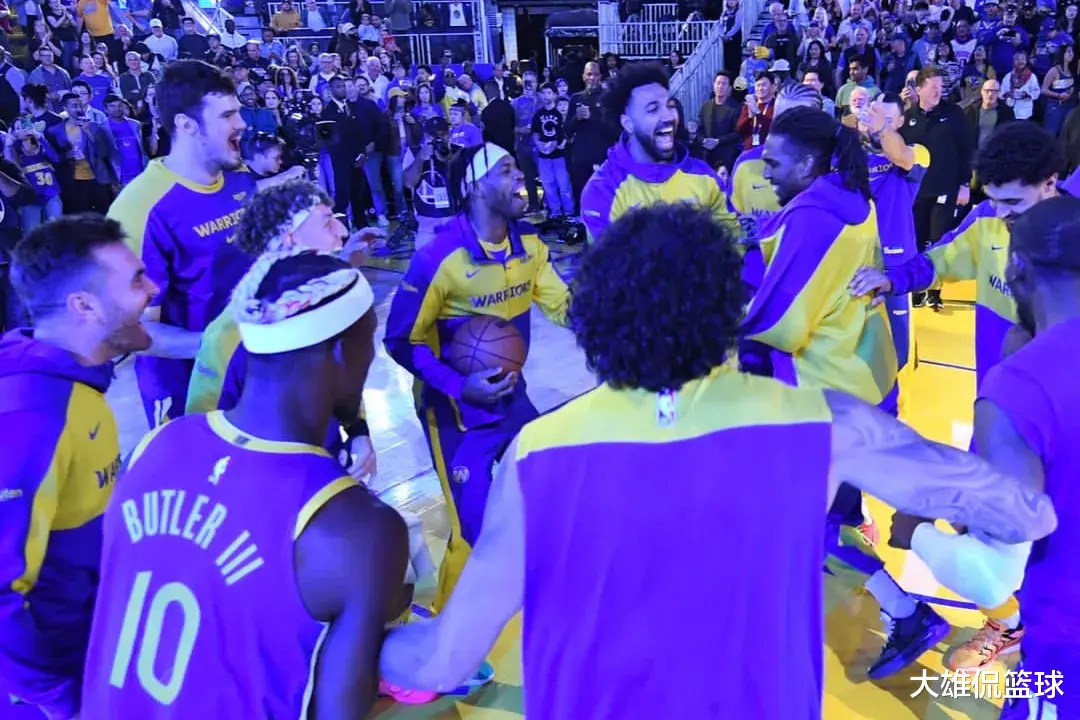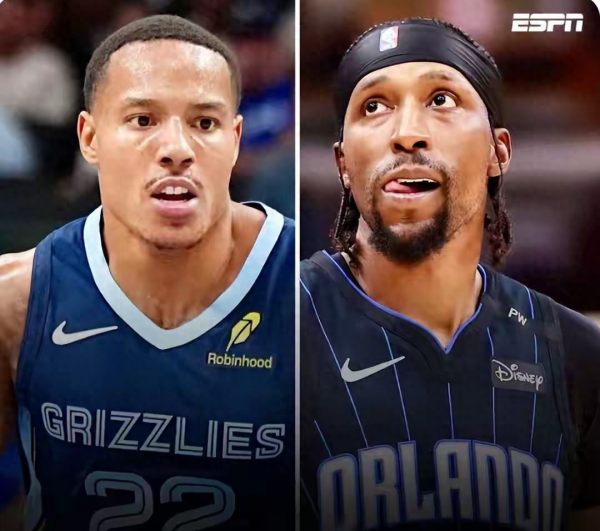HOME > Basketball
Do NBA players bribe coaches to increase their playing time?
9:02pm, 17 November 2025【Basketball】
Players dare to give, but coaches may not dare to accept.
Whether anyone has tried this secretly, let’s not comment for now and let’s clarify the core issue first – is it worth it?
Let me say that from the perspective of "input-output ratio" alone, it is indeed worth a try.
The NBA is the highest palace of basketball in the world, and no player who can stand on this court is an ordinary player. Even the "leftovers" who can't play in garbage time and can only wave towels and serve tea and water for teammates on weekdays still have extraordinary basketball talent. What they lack is often not strength, but an opportunity to prove themselves. As long as the coach is willing to invest more trust and allocate more playing time, these overlooked players may seize the opportunity to make a splash and soar into the sky, growing from the end of the bench to All-Stars, league superstars, and even epoch-making superstars.
Just like Jimmy Butler, he was just a marginal rotation for the Bulls. With the opportunity given by the coach and his own hard work, he suddenly earned the title of "tough guy" and became a top wing selected to the All-Star multiple times; Paul George was once a substitute player for the Pacers, and after getting stable playing time, he quickly rose to become an offensive and defensive superstar; even Kobe, who only started as a substitute when he first entered the league, relied on the trust of the coach and his own extreme efforts to eventually become a generation legend.

These examples undoubtedly prove that opportunity is the key to changing destiny for talented players. But the premise of all this is that the players can seize this fleeting opportunity. Actively perform in the limited playing time, and use your strength to win further recognition from coaches and teammates, instead of being like some players who finally get the opportunity but bluntly say "I'm not ready", letting the opportunity slip away in vain, and giving the opportunity is useless.
To take a step back, even if you cannot become an All-Star star, as long as you can establish yourself in the NBA with stable playing time and become an ordinary player in the team's regular rotation, the benefits will be considerable. After all, the salary system of the NBA is there. Even players with a minimum salary can get millions of dollars a year. After deducting taxes and living expenses, the remaining income is enough to support a luxurious life, including beautiful cars, beautiful women, luxury houses and famous watches.
Calculating it this way, if the coach can really increase his playing time in some way and transform from a marginal player into a regular rotation, it is almost a guaranteed profit without loss. In theory, it is completely worth giving it a try. But the strange thing is that since the NBA was founded in 1946, and in its nearly 80-year history, there has never been a real case of players openly bribing coaches in exchange for playing time. The reasons behind this are far more complicated than imagined.
Let me first tell you about the "yin-yang contract" incident that will be recorded in the history of the NBA. We may be able to get a glimpse of it. In 1998, the NBA experienced a serious lockout. After the resumption, the Minnesota Timberwolves were determined to compete for the championship. At that time, the team already had Kevin Garnett, a rising star. The management hoped to match him with a capable helper, and the 1995 No. 1 pick Joe Smith entered their field of vision. At that time, Joe Smith was in his prime and had good inside strength. He was an excellent candidate for reinforcement. However, the problem was that the Timberwolves' salary space was seriously saturated at the time and they could not sign him at market price.
In order to get around the salary cap restrictions, the Timberwolves management and Joe Smith reached a secret agreement in private: Joe Smith signed a one-year contract with the team with an annual salary well below the market price for three consecutive years. When the three-year contract expires, the Timberwolves will use the "Bird Clause" to give Joe Smith a long-term contract worth $86 million as compensation. In the first two years of the agreement, both parties strictly abided by the agreement. Joe Smith played for the Timberwolves at a low salary, and the team also formed the inside combination of Garnett + Joe Smith as they wished. During this period, the league also had doubts about the Timberwolves' ability to sign powerful players like Joe Smith at a low price, but because there was no substantial evidence, the investigation could only be dropped.
However, in 2000, things took a dramatic turn. Joe Smith's two agents went to court due to a dispute over interests. In order to compete for agency rights, both parties disclosed a large number of secret documents related to Joe Smith's contract during the trial. This "yin and yang contract" that had been hidden for two years was also made public. The league immediately intervened in the investigation after learning about it, and after rigorous verification, it soon issued heavy penalties:
1. Imposed a huge fine of US$3.5 million on the Timberwolves (which was the highest fine in the history of the league at the time until it was exceeded by former Suns owner Robert Sarver's US$10 million in 2022), and confiscated the team's first-round draft picks for the next five years (later returned to the league after appeal) First-round picks in 2003 and 2005);
2. The third contract signed by Joe Smith with the Timberwolves was directly canceled, and the team also lost the qualification to use the Bird clause to renew his contract, and could only re-sign him with a basic salary;
3. Timberwolves owner Glen Taylor and vice president of basketball operations Kevin McHale were suspended from their duties for one year and were prohibited from participating in any operations of the team.
This penalty was a devastating blow to the Timberwolves: they lost first-round picks for many years to come, and the team lost an important way to strengthen through the draft, which directly led to a sharp decline in the team's competitiveness, and it has not been able to recover for many years. After several years of struggling with the Timberwolves, Garnett was still unable to reach the threshold of a championship. In the end, he had no choice but to leave for the Boston Celtics to realize his championship dream.
Looking back, although the behavior of players bribing coaches in exchange for playing time does not touch the core interests of the league's salary system like the "yin and yang contract" in nature, and does not rise to the level of shaking the foundation of the league, it is at most a violation of the team's internal rules and regulations, but its "exposure risk" is even worse.. The "yin and yang contract" is a secret operation between the management and the players. If the agent had not turned against him and took the initiative to break the news, it might still be a secret that no one knows. But for players to bribe coaches, even if they want to do it secretly, it is difficult to hide it. Because the so-called concealment is almost equivalent to semi-publicity.
First of all, judging from the team's rotation logic, the players who would think about bribing the coach to gain playing time are most likely the 11th or 12th player in the team's lineup, or even the fringe players further back. Although the playing time allocation of an NBA team will be adjusted according to the opponent's situation and on-the-spot status, it generally has a relatively fixed range: starting players can usually get more than 30 minutes of playing time, and the playing time of the core leader is not too restricted; the sixth man, as the core of the bench lineup, can generally get about 25 minutes of stable playing time. Playing time; the playing time of regular substitute players fluctuates around 15 minutes; while most of the second-round substitute players can only get 1-5 minutes of playing time in the "garbage time" when the outcome of the game is decided. If the two sides are evenly matched and the game rhythm is tight, they may even sit on the bench for the entire game and not even get half a second of playing time.
Under this fixed rotation framework, if a second-round substitute who could only play garbage time suddenly gets a significantly increased playing time, even if it is only increased from 1-2 minutes to 10 minutes, once his performance is not worthy of this trust, such as frequent mistakes and low efficiency on both ends of the offense and defense, but he can still get stable opportunities to play, it will inevitably arouse doubts. Teammates on the same team will find it unfair: Why should a person who is not as good as him get more opportunities? Fans and media will also notice the clues and complain to the team or even the league. At that time, coaches who take bribes and players who give bribes will face severe punishment, ranging from being fired from the team and losing their jobs; to being blacklisted by the league and permanently losing their qualifications to work in the NBA. Years of hard work and accumulation will be wiped out in one fell swoop.
Secondly, from a profit perspective, this "deal" is completely outweighed by gains and losses for the coach. Most of the annual salaries of fringe NBA players are in the million-dollar range. After deducting federal taxes, state taxes, agent commissions and other expenses, the amount of money that can be truly saved in a year is actually limited. Even if it is all used to bribe coaches, the maximum amount will only be about 300,000 US dollars. This money may seem like a lot, but for NBA coaches, it's just a drop in the bucket. The annual salary of even a mid-level head coach in the league can reach millions of dollars, and the annual salary of top coaches can reach tens of millions of dollars. Coaches have already achieved financial freedom, and there is no need to risk ruining their reputation and losing their high-paying jobs by doing such shameful things just for a small profit.
More importantly, the NBA is an extremely results-oriented league. The core purpose of team owners paying for coaches is to win and compete for the championship. If a team has poor performance for several consecutive years, or even fails to achieve its expected goals in just one season or a few games, the first person to be "cut" is the coach. Being fired and dismissed is a common occurrence, and no mercy will be shown. Therefore, the vast majority of NBA coaches will regard "winning" as their primary goal and insist on meritocracy in hiring. This is not only for the team's performance, but also to keep his own job: as long as the player has the ability and can contribute to the team, even if he is a newcomer, the coach will not hesitate to give him a chance; but if the player himself is incompetent, no matter how close the relationship is, or even his own son, he will never be allowed to play if he should not be allowed to play. After all, no coach wants to joke about his career.
In the final analysis, players who want to obtain playing time by bribing coaches are essentially taking a crooked path in which "the risks far outweigh the benefits." For players, the risk of exposure is extremely high, and once discovered, their futures will be ruined; for coaches, there is no profit to be gained, but they also have to bear huge risks, and the gains outweigh the losses. The NBA's mature league rules, strict supervision system, and survival rule of "strength only, results only" have fundamentally blocked the possibility of such evil ways. For players, it is better to concentrate on polishing their skills instead of thinking about side tricks. Strength is the only pass to gain a foothold in the NBA.
Related Posts
- As expected! Reporters posted netizen prediction votes: 60% successfully predicted that James would not announce his retirement.
- A star who may retire in the NBA in the past five years. Time always says goodbye
- +1! The fourth player this summer goes abroad and joins the overseas league and is expected to become the next Yang Hansen
- Adebayo s girlfriend is too strong: He won 6 consecutive victories with 30+16, breaking the record and becoming the first person in WNBA history
- The Chinese men s basketball team will see a blowout talent in the next Olympics, and Yao Ming s dividends will gradually be reflected!
- NBA Rockets News: Renewal with Tate
- Wiggins takes a family on vacation and earns 250 million yuan. The Lakers want to trade him, and his wife has a good figure
- Heroes cherish each other! Pierce praised Kobe as the second Jordan, saying that defending him is very stressful
- NBA Playoffs: Unexpected 3-1, Kaiyong is in trouble, Nuggets Thunder King Mountain
- Chasing dreams and mocking Dillon was criticized by American netizens! James was caught in a gunfire!
Hot Posts
- As expected! Reporters posted netizen prediction votes: 60% successfully predicted that James would not announce his retirement.
- A star who may retire in the NBA in the past five years. Time always says goodbye
- +1! The fourth player this summer goes abroad and joins the overseas league and is expected to become the next Yang Hansen
- Adebayo s girlfriend is too strong: He won 6 consecutive victories with 30+16, breaking the record and becoming the first person in WNBA history
Recommend

The Lakers sign new target? Pelinka may aim for the 10+7 center, the three advantages are very suitable for the Purple and Gold Army

Curry and two starting players are expected to return against the Trail Blazers, while Green will be rested

ESPN expert team predicts new season: Thunder champion Jokic MVP Flagg s best rookie

Shams: Four to six teams are interested in KD. The Suns will discuss new places with him

Wade complained about Butler, who made $60 million in annual salary like this, it s not a mistake for the Heat to not want you

Pacers coach talks about "league appearance": James and Curry, they are still benchmarks in the league

Eastern Magic took the lead in firing the first shot in the league s trading. What is the purpose of becoming a top 3D?

Zion s first training after losing weight: Blasting and dunking ignite the scene